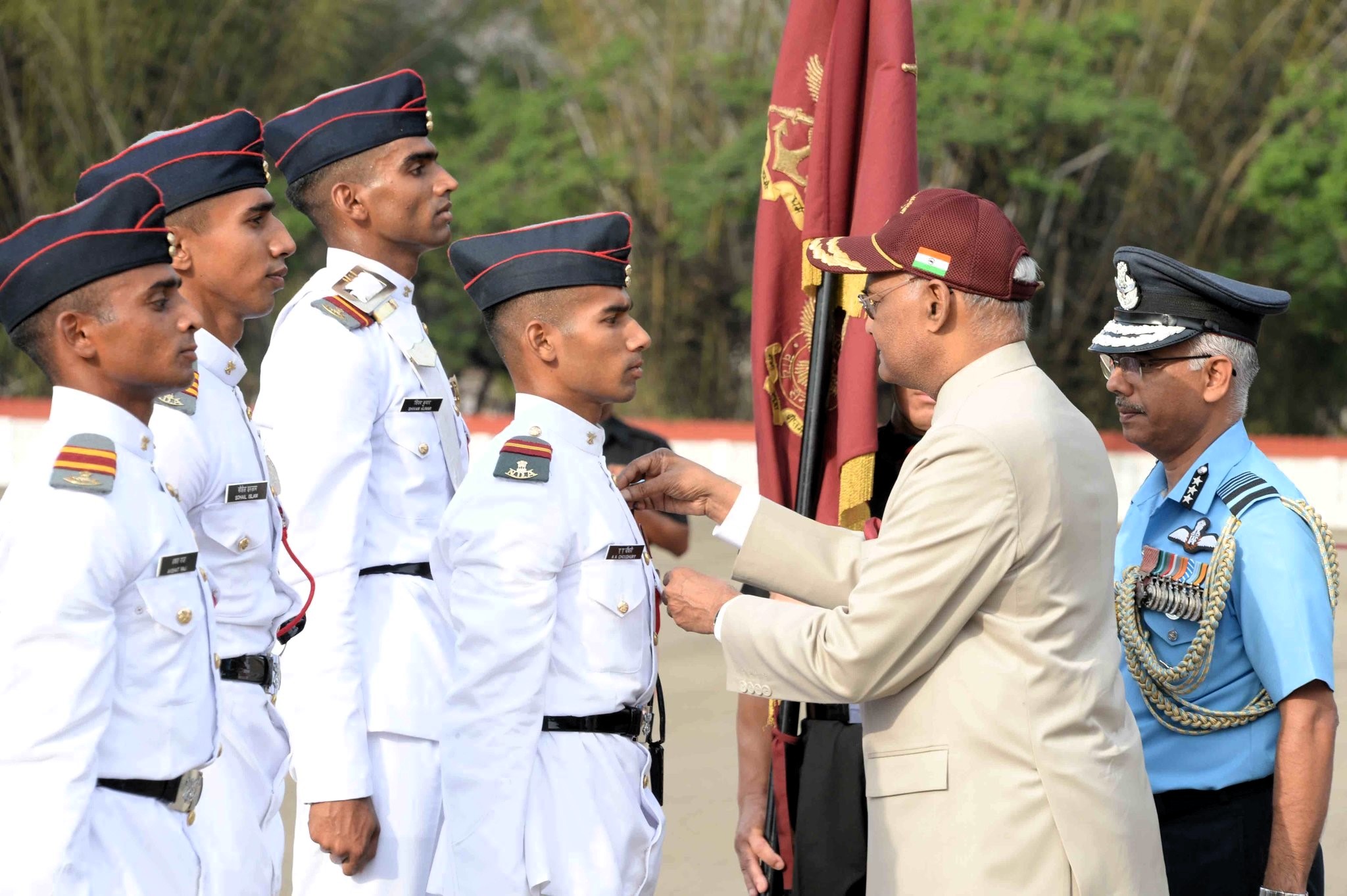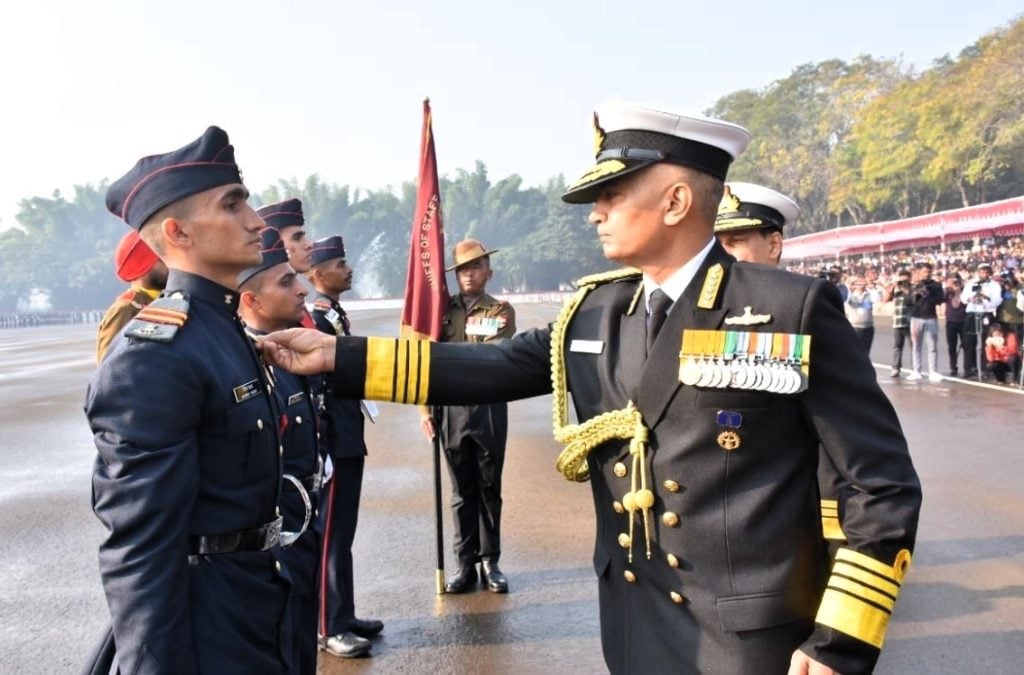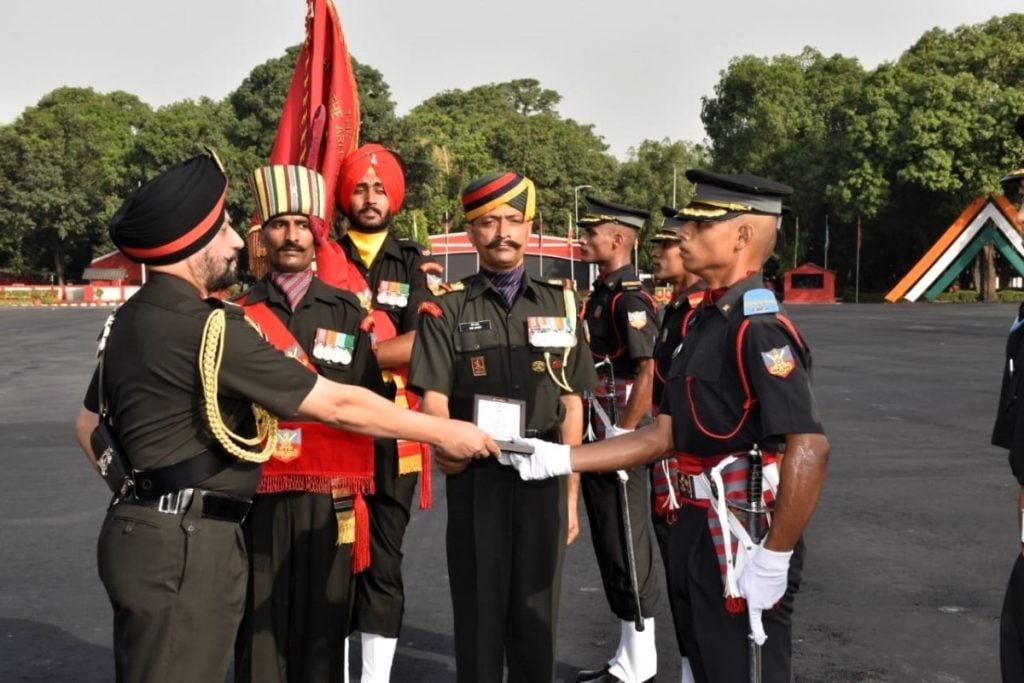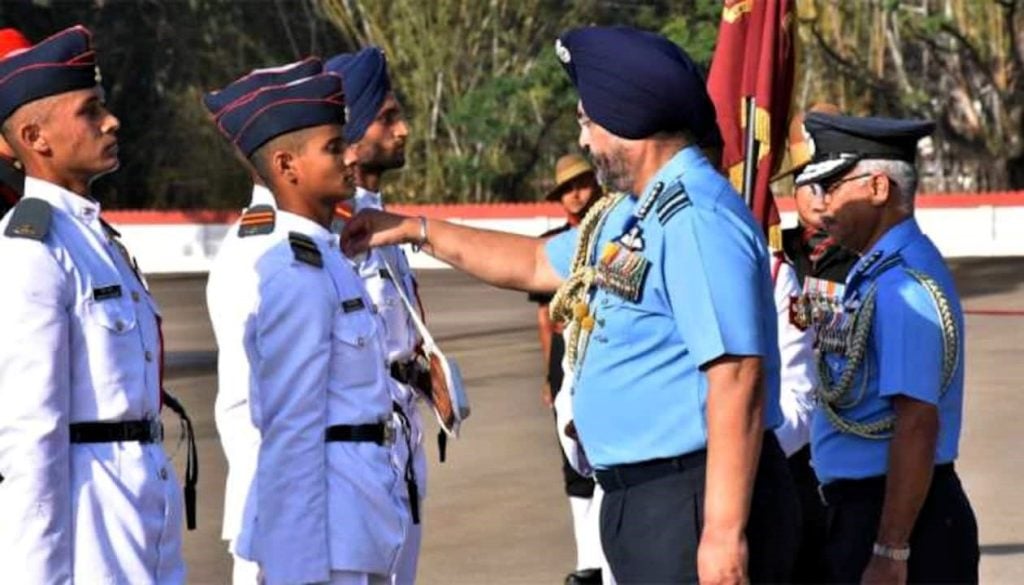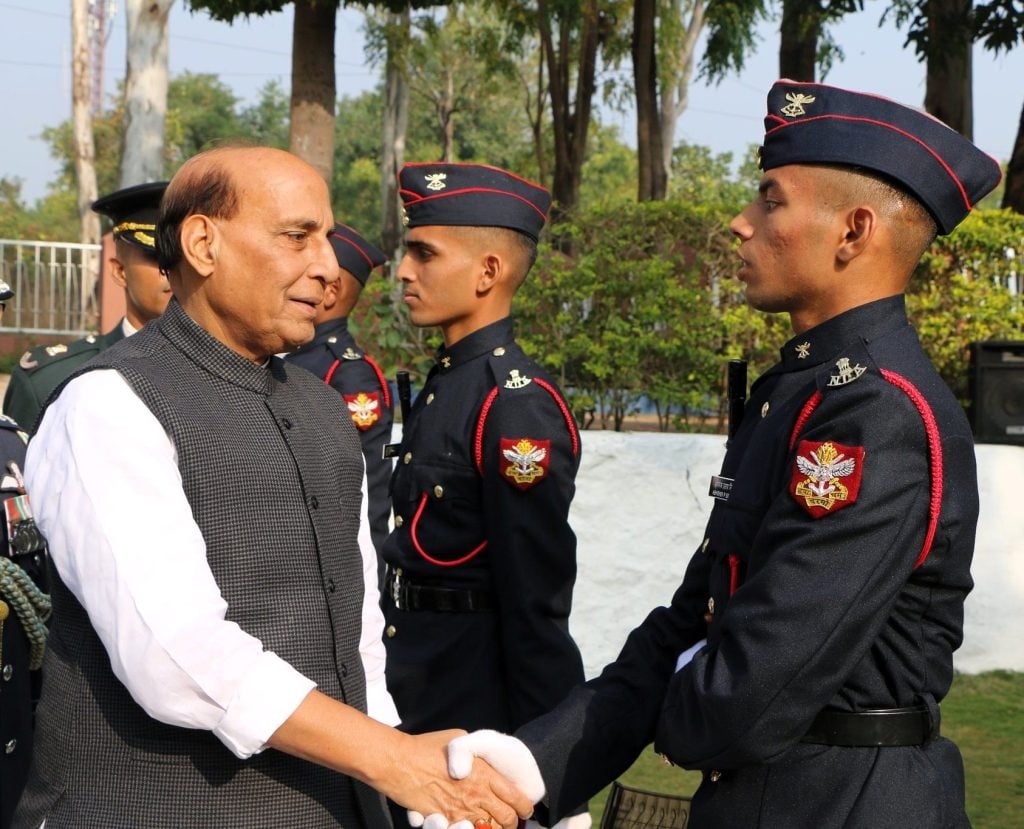Introduction
The National Defence Academy (NDA) stands as one of India’s most prestigious institutions, dedicated to training and grooming young individuals to become officers in the Indian Armed Forces. Located in Khadakwasla, Pune, the NDA is renowned for its rigorous training program, which emphasizes leadership, discipline, physical fitness, and mental toughness. The academy offers a comprehensive three-year training program, after which cadets are commissioned as officers in the Army, Navy, or Air Force.
The NDA Entrance Exam
The National Defence Academy entrance exam, conducted twice a year by the Union Public Service Commission (UPSC), is considered one of the toughest exams in the country. It comprises two papers: Mathematics and General Ability Test (GAT). Candidates must clear both papers to progress to the next stage of the selection process. The exam is open to candidates who have completed their 12th standard or equivalent examination.
The Importance of the NDA Medical Test
Ensuring Physical Fitness
The National Defence Academy Medical Test assesses the physical fitness of candidates, crucial for officers in the Indian Armed Forces. The test evaluates a candidate’s overall health, vision, hearing, and physical abilities to ensure they can perform the duties of an officer.
Determining Mental Fitness
Beyond physical fitness, the National Defence Academy Medical Test also evaluates a candidate’s mental health and psychological fitness. This assessment is essential to ensure candidates can handle stress and pressure, a critical aspect of military life.
Identifying Medical Conditions
The medical examination is designed to identify any medical conditions that might disqualify a candidate from admission to the National Defence Academy. Conditions such as chronic illnesses, vision or hearing problems, and physical disabilities are some of the factors considered.
Promoting Safety and Efficiency
Officers in the Indian Armed Forces are responsible for the nation’s safety and security. The National Defence Academy Medical Test ensures that only physically and mentally fit individuals are selected, promoting safety and efficiency in the armed forces.
Maintaining High Standards
The National Defence Academy is known for its high standards of training and discipline. The National Defence Academy Medical Test plays a crucial role in maintaining these standards by ensuring only the best and most capable candidates are selected for training at the academy.
The NDA Medical Test Procedure
Registration
Candidates who clear the National Defence Academy written exam must register for the National Defence Academy Medical Test. This process includes filling out a medical examination form and providing personal and medical history details.
Medical Examination Stages
Stage One: Preliminary Examination
The preliminary examination includes a general physical checkup, urine analysis, and blood tests.
Stage Two: Detailed Medical Examination
Candidates who clear the preliminary examination undergo a detailed medical examination, which includes a complete physical examination, vision test, hearing test, chest X-ray, and other specialized tests.
Physical Fitness Test
Candidates are required to undergo a physical fitness test that includes various exercises to assess their physical fitness, such as running, push-ups, sit-ups, and pull-ups.
Medical Report
After the medical examination, a detailed medical report is prepared for each candidate. This report contains details of the candidate’s physical and mental health, medical history, and any identified medical conditions.
Medical Review
The medical report is reviewed by a Medical Board consisting of qualified medical professionals. The board determines whether a candidate is fit to serve as an officer in the Indian Armed Forces. Candidates with disqualifying medical conditions may be declared unfit for admission to the NDA.
Medical Standards for NDA Admission
The National Defence Academy Medical Test evaluates a candidate’s physical and mental fitness according to specific medical standards set by the Indian Armed Forces. These standards ensure candidates are fit to serve as officers in the Indian Army, Navy, or Air Force.
Height and Weight Standards
| Age (years) | Minimum Height (cm) | Minimum Weight (kg) |
|---|---|---|
| 16-17 | 152 | 42.5 |
| 18-19 | 152 | 45.0 |
| 20-22 | 152 | 47.0 |
*Minimum height for male candidates: 157.5 cm *Minimum height for female candidates: 152 cm
Vision Standards
Candidates must have 6/6 vision in each eye without any color blindness or night blindness. Candidates with corrective lenses may be considered if their vision meets the minimum standards.
Hearing Standards
Candidates must have normal hearing in each ear without significant loss or impairment. Candidates with hearing aids may be considered if their hearing meets the minimum standards.
Respiratory Health
Candidates must have normal lung function without significant respiratory problems or asthma. Candidates with well-controlled asthma or other respiratory issues may be considered if their condition does not interfere with their duties.
Cardiovascular Health
Candidates must have normal blood pressure, pulse rate, and electrocardiogram (ECG) readings. Candidates with a history of heart disease or high blood pressure may be considered if their condition is well-controlled and does not interfere with their duties.
Mental Health
Candidates must have good mental health without significant psychiatric disorders or emotional instability. Candidates with a history of psychiatric treatment or medication may be considered if their condition is well-managed and does not interfere with their duties.
Musculoskeletal Health
Candidates must have a normal range of motion and no significant orthopedic problems or spinal deformities. Candidates with a history of bone fractures or joint problems may be considered if their condition has healed and does not interfere with their duties.
Common Medical Issues Identified During the NDA Medical Test
Vision Problems
Candidates with vision problems such as nearsightedness or farsightedness may be disqualified. The medical examination includes a vision test to evaluate visual acuity.
Hearing Loss
Candidates with hearing loss or other hearing-related problems may be declared unfit. The medical examination includes a hearing test to evaluate hearing abilities.
Asthma and Respiratory Problems
Candidates with asthma or other respiratory problems may be disqualified. The examination includes a chest X-ray and lung function test to evaluate respiratory health.
Cardiovascular Issues
Candidates with cardiovascular issues such as heart disease or high blood pressure may be disqualified. The examination includes an electrocardiogram (ECG) and other tests to evaluate cardiovascular health.
Mental Health Issues
Candidates with mental health issues such as depression, anxiety, or other psychiatric disorders may be declared unfit. The examination includes a mental health assessment to evaluate psychological fitness.
Orthopedic Problems
Candidates with orthopedic problems such as bone fractures, joint problems, or spinal deformities may be disqualified. The examination includes a physical examination to evaluate musculoskeletal health.
Preparation Tips for the NDA Medical Test
Maintain a Healthy Lifestyle
Candidates should maintain a healthy lifestyle by eating a nutritious diet, getting regular exercise, and avoiding unhealthy habits like smoking or excessive drinking. A healthy lifestyle can improve physical and mental fitness, aiding performance in the NDA Medical Test.
Regular Medical Check-ups
Regular medical check-ups can help identify and manage underlying medical conditions. Early detection and treatment of medical issues can improve the chances of passing the NDA Medical Test.
Familiarize with Medical Standards
Candidates should familiarize themselves with the NDA Medical Test standards and ensure they meet the requirements, particularly in height and weight, vision, hearing, respiratory health, cardiovascular health, mental health, and musculoskeletal health.
Practice Relaxation Techniques
Relaxation techniques such as deep breathing, meditation, or yoga can help reduce stress and anxiety before the National Defence Academy Medical Test. This can improve performance and reduce the risk of conditions like high blood pressure or panic attacks.
Bring Required Documents
Candidates should ensure they bring all required documents for the NDA Medical Test, including medical reports and necessary certificates. Failure to provide required documents can lead to disqualification.
Get Adequate Rest
Adequate rest before the NDA Medical Test ensures candidates are well-rested and alert, improving mental and physical performance during the test.
Dress Appropriately
Candidates should dress in comfortable, appropriate clothing that allows free movement during the physical fitness test.
Conclusion
The National Defence Academy Medical Test is a critical component of the selection process for admission to the National Defence Academy. It evaluates a candidate’s physical and mental fitness and identifies underlying medical conditions that may prevent them from serving as an officer in the Indian Armed Forces. The examination is rigorous and detailed, covering various aspects of health, including vision, hearing, respiratory health, cardiovascular health, mental health, and musculoskeletal health.
Candidates must be aware of the medical requirements for admission to the National Defence Academy and take necessary steps to maintain their physical and mental health. This includes regular exercise, maintaining a healthy diet, and seeking medical treatment for underlying health conditions.
In summary, the NDA Medical Test is essential for ensuring that candidates are fit to serve as officers in the Indian Armed Forces. Maintaining physical and mental health is crucial for fulfilling the duties of an officer and successfully passing the NDA Medical Test.
FAQs
1. What is the NDA Medical Test?
The NDA Medical Test is a crucial part of the selection process for admission to the National Defence Academy. It evaluates a candidate’s physical and mental fitness to ensure they meet the standards required for officers in the Indian Armed Forces.
2. Why is the NDA Medical Test important?
The test ensures candidates are physically and mentally fit to handle the demands of military life. It helps maintain high standards of safety, efficiency, and performance in the armed forces by selecting only the most capable individuals.
3. What vision standards must candidates meet?
Candidates must have 6/6 vision in each eye without any color blindness or night blindness. Corrective lenses are allowed if the vision meets the minimum standards.
4. What hearing standards are required?
Candidates must have normal hearing in each ear without significant loss or impairment. Hearing aids are allowed if the hearing meets the minimum standards.
5. Are there any specific requirements for respiratory health?
Candidates must have normal lung function without significant respiratory problems or asthma. Conditions like asthma may be considered if well-controlled and non-interfering with duties.
